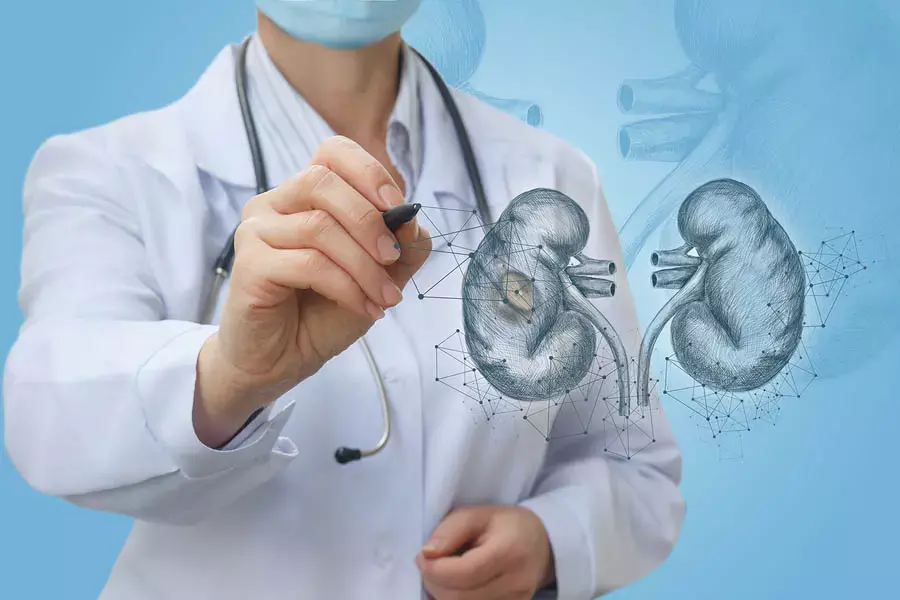- Home
- Medical news & Guidelines
- Anesthesiology
- Cardiology and CTVS
- Critical Care
- Dentistry
- Dermatology
- Diabetes and Endocrinology
- ENT
- Gastroenterology
- Medicine
- Nephrology
- Neurology
- Obstretics-Gynaecology
- Oncology
- Ophthalmology
- Orthopaedics
- Pediatrics-Neonatology
- Psychiatry
- Pulmonology
- Radiology
- Surgery
- Urology
- Laboratory Medicine
- Diet
- Nursing
- Paramedical
- Physiotherapy
- Health news
- Fact Check
- Bone Health Fact Check
- Brain Health Fact Check
- Cancer Related Fact Check
- Child Care Fact Check
- Dental and oral health fact check
- Diabetes and metabolic health fact check
- Diet and Nutrition Fact Check
- Eye and ENT Care Fact Check
- Fitness fact check
- Gut health fact check
- Heart health fact check
- Kidney health fact check
- Medical education fact check
- Men's health fact check
- Respiratory fact check
- Skin and hair care fact check
- Vaccine and Immunization fact check
- Women's health fact check
- AYUSH
- State News
- Andaman and Nicobar Islands
- Andhra Pradesh
- Arunachal Pradesh
- Assam
- Bihar
- Chandigarh
- Chattisgarh
- Dadra and Nagar Haveli
- Daman and Diu
- Delhi
- Goa
- Gujarat
- Haryana
- Himachal Pradesh
- Jammu & Kashmir
- Jharkhand
- Karnataka
- Kerala
- Ladakh
- Lakshadweep
- Madhya Pradesh
- Maharashtra
- Manipur
- Meghalaya
- Mizoram
- Nagaland
- Odisha
- Puducherry
- Punjab
- Rajasthan
- Sikkim
- Tamil Nadu
- Telangana
- Tripura
- Uttar Pradesh
- Uttrakhand
- West Bengal
- Medical Education
- Industry
Low Urine Potassium Increases Risk of High Blood pressure variability in Pre-dialysis CKD Patients

Blood pressure (BP) variability (BPV) is an emerging mediator of clinical outcomes. The association between long-term BPV and the risk of incident chronic kidney disease (CKD) has been repeatedly reported in the general population. A recent study suggests that low urine potassium excretion is independently associated with high BPV in patients with pre-dialysis CKD. The study findings were published in the journal Nutrients on December 13, 2021.
Dietary potassium intake is a dilemma in patients with CKD. Studies have shown potassium-rich diets reduce CV events and all-cause mortality in the general population. However, whether low dietary potassium negatively affects CV outcomes in CKD patients remains unclear. Therefore, Dr Soo Wan Kim and his team conducted a study to evaluate the association of urine potassium excretion, a surrogate for dietary potassium intake, with BPV and cardiovascular (CV) outcomes in patients with pre-dialysis CKD.
The Korean Cohort Study for Outcomes in Patients with Chronic Kidney Disease (KNOW-CKD) is a nationwide prospective cohort study involving 9 tertiary-care general hospitals in Korea. They included a total of 1860 patients from a cohort of pre-dialysis CKD (KNOW-CKD) and divided them into the quartiles by spot urine potassium-to-creatinine ratio, where the 1st and 4th quartiles were defined as low and high, respectively. The major outcomes assessed were incidence of extended major cardiovascular events (eMACEs) and all-cause mortality.
Key findings of the study:
- Upon multivariate linear regression analyses, they found an independent association of low urine potassium excretion with high BPV (adjusted β coefficient 1.163).
- Using cox regression analyses, they found that, compared to high urine potassium excretion, low urine potassium excretion is associated with increased risk of CV events (adjusted hazard ratio 2.502) but not with all-cause mortality.
The authors concluded, "We report that low urine potassium excretion is independently associated with high BPV and is also significantly associated with increased risk of eMACE in patients with pre-dialysis CKD. Considering the potential CV benefit conferred by a high potassium diet, the restriction of dietary potassium intake should be individualized in patients with pre-dialysis CKD."
For further information:
Medical Dialogues Bureau consists of a team of passionate medical/scientific writers, led by doctors and healthcare researchers. Our team efforts to bring you updated and timely news about the important happenings of the medical and healthcare sector. Our editorial team can be reached at editorial@medicaldialogues.in.
Dr Kamal Kant Kohli-MBBS, DTCD- a chest specialist with more than 30 years of practice and a flair for writing clinical articles, Dr Kamal Kant Kohli joined Medical Dialogues as a Chief Editor of Medical News. Besides writing articles, as an editor, he proofreads and verifies all the medical content published on Medical Dialogues including those coming from journals, studies,medical conferences,guidelines etc. Email: drkohli@medicaldialogues.in. Contact no. 011-43720751


